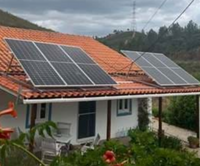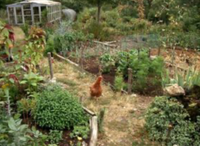Permaculture
Self-sufficiency is a lifestyle in which people strive to meet their basic needs without relying on external sources. In Central Portugal, many people have embraced this way of life. They aim to be as self-reliant as possible, relying on their own skills and resources. They grow their own food, use sustainable energy sources, and take measures to manage water efficiently.
Some key aspects of self-sufficiency include:
- Food production: Self-sufficient individuals and communities often cultivate their own food. This can involve creating vegetable gardens, growing fruit trees, raising animals for meat, eggs, or milk, and foraging edible plants in nature.
- Energy supply: Sustainable energy sources play a significant role in self-sufficiency. This includes utilizing solar energy through solar panels, harnessing wind energy through wind turbines, and using biomass or biogas for heating and cooking.
- Water supply: Self-sufficient individuals often seek ways to use and manage water efficiently. This can include collecting rainwater, digging wells, using greywater systems for water reuse, and purifying water from natural sources like rivers or springs.
- Building materials: When creating their living environment, self-sufficient people strive for sustainability and self-reliance. They use natural and renewable materials such as wood, bamboo, clay, or straw for constructing homes, sheds, and other structures.
Permaculture:
Permaculture is a holistic approach to sustainable living and land management. It is based on principles that mimic natural ecosystems and aims to create harmonious and regenerative systems. By designing and implementing strategies such as companion planting, soil conservation, water harvesting, and biodiversity preservation, permaculture seeks to create self-sustaining and resilient environments. It promotes a symbiotic relationship between humans, nature, and the surrounding ecosystem, fostering long-term sustainability and ecological balance.

